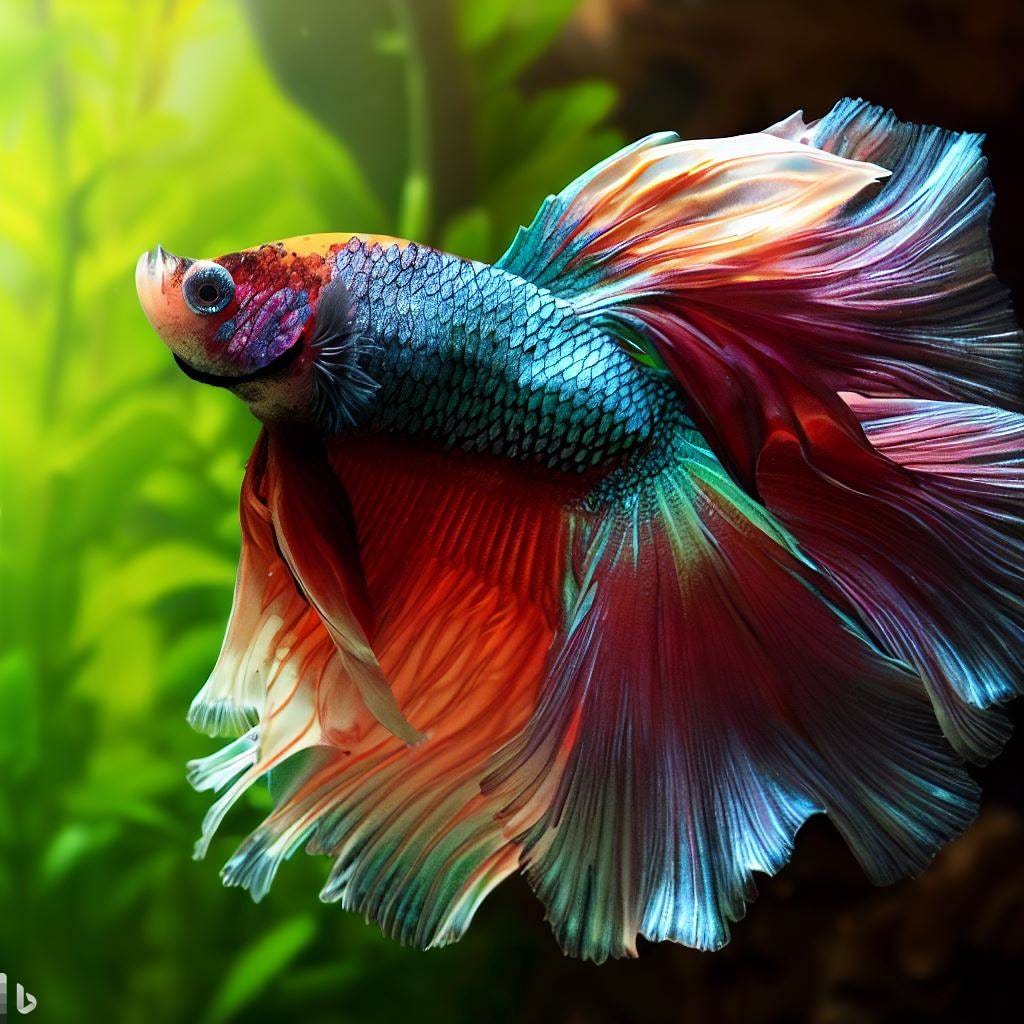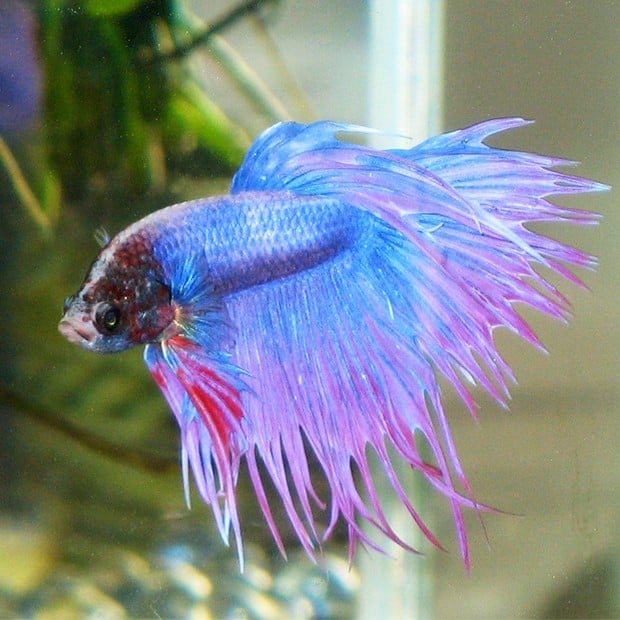Betta Fish Diet Regimen: What to Feed Your Betta for Ideal Health And Wellness
Betta Fish Diet Regimen: What to Feed Your Betta for Ideal Health And Wellness
Blog Article
Everything About Betta Fish: Understanding Their One-of-a-kind Demands, Habits, and the Finest Practices for Optimum Care
Recognizing the one-of-a-kind requirements and actions of Betta fish is necessary for any aquarist looking to give optimum care. betta fish. As we check out these components even more, the effects for both novice and skilled fish keepers end up being significantly evident, increasing inquiries about exactly how best to fit these amazing fish in our homes.
Betta Fish Overview
Although often admired for their lively shades and moving fins, Betta fish, scientifically referred to as Betta splendens, are complicated creatures that call for particular treatment to prosper. Stemming from Southeast Asia, these freshwater fish are known for their territorial nature and distinct behaviors. Betta fish show sexual dimorphism, with men presenting a lot more vivid colors and longer fins than women.
Their aggressive propensities, especially among males, necessitate careful factor to consider when housing them. Bettas are commonly maintained in single-specimen tanks to protect against territorial conflicts. They can exist side-by-side quietly with certain compatible species in larger area storage tanks, provided the setting fulfills their needs.

To make sure optimum treatment, aquarists have to comprehend their unique behavioral traits, dietary requirements, and environment needs. betta fish. With correct attention, Betta fish can show their lively personalities and flourish in a well-maintained fish tank setup
Natural Environment and Atmosphere
Betta fish prosper in a diverse series of all-natural habitats, primarily found in the shallow waters of Southeast Asia, including rice paddies, swamps, and slow-moving streams. These settings are defined by warm temperatures, usually between 75 ° F and 82 ° F(24 ° C and 28 ° C ), and a pH level ranging from 6.5 to 7.5, which is excellent for their health and health.
In their all-natural environments, Betta fish are accustomed to thick vegetation, supplying both shelter and breeding grounds. The existence of plants such as floating water lilies and thick yards not only supplies protection from killers but also adds to the oxygenation of the water, which is necessary for their respiratory system demands. Additionally, these settings often have locations of still water, allowing Betta fish to display their all-natural actions such as bubble nesting.
Understanding the all-natural habitat of Betta fish is vital for aquarium lovers. Reproducing these problems-- via water temperature level, pH balance, and the inclusion of live plants-- can dramatically enhance the overall wellness and durability of these exciting fish, guaranteeing they prosper in a home fish tank setting.
Social Behavior and Communications
Recognizing the social actions and communications of Betta fish is vital for successful fish tank administration. Betta fish, or This Site Siamese combating fish, are known for their one-of-a-kind behavior traits, defined primarily by territoriality and hostility. Males, specifically, present extremely hostile habits towards each other, leading to the notorious online reputation of Betta fish as competitors. In a confined space, two men can take part in violent confrontations, commonly leading to injury or fatality.
On the other hand, women Bettas show less aggressive habits and can exist side-by-side in groups, called sororities, if presented appropriately. Nevertheless, it is vital to check their interactions closely, as power structure and dominance can cause conflicts. Recognizing the characteristics within a Betta area is important; developing concealing areas and guaranteeing sufficient area can reduce hostility.
On top of that, Betta fish may also present inquisitiveness and social habits towards other species. While they can coexist with certain non-aggressive tank friends, it is necessary to choose suitable species to avoid tension and aggressiveness. Overall, acknowledging these social interactions is essential to cultivating a harmonious fish tank atmosphere for Betta fish.
Necessary Treatment Guidelines
Providing correct care for Betta fish is crucial to their health and well-being. Routine water modifications-- roughly 25% once a week-- help keep water top quality.
Betta fish need an appropriate container size; a her response minimum of 5 gallons is recommended to supply adequate room for swimming and hiding. Consist of decors and plants to develop a stimulating environment, yet prevent sharp things that could damage their fragile fins.

Finally, ensure the storage tank is equipped with a filter to keep the water tidy, yet utilize a mild filter to prevent strong currents that can emphasize the fish. By adhering to these crucial treatment standards, owners can advertise a healthy and vivid Betta fish.
Common Health And Wellness Issues and Solutions
In the treatment of Betta fish, awareness of common health and wellness issues is vital for maintaining their health. To deal with fin rot, improve water conditions and think about using a broad-spectrum antibiotic.
One more usual disorder is ich, a parasitical infection identified by white areas on the fish's body (betta fish). Treatment includes increasing water temperature and adding aquarium salt to the container, as this can help remove the bloodsucker
Swim bladder problem is additionally often observed, resulting in buoyancy problems. This condition might occur from overfeeding or bowel irregularity. A fasting duration of 24-48 hours, complied with by a diet of blanched peas, can give alleviation.
Last but not least, bettas might experience velour illness, suggested by a gold dust-like appearance on their skin. Therapy generally calls for drug specifically developed for exterior parasites, together with boosted container health.
Normal surveillance of water specifications, preserving a clean atmosphere, and giving a balanced diet plan are important safety nets. By resolving these health issues quickly, Betta fish can lead much healthier, more vibrant lives.
Verdict
In summary, successful betta fish care needs an understanding of their distinct demands and habits. Supplying an appropriate environment, including ideal tank size and water conditions, is necessary for their well-being. Furthermore, acknowledging their territorial nature and guaranteeing appropriate concealing spots can avoid aggressiveness. Routine monitoring of health and wellness and water quality, in addition to a balanced diet plan, adds to the long life over at this website and vibrancy of betta fish. Following these standards will promote a growing aquatic community for these captivating creatures.
Report this page